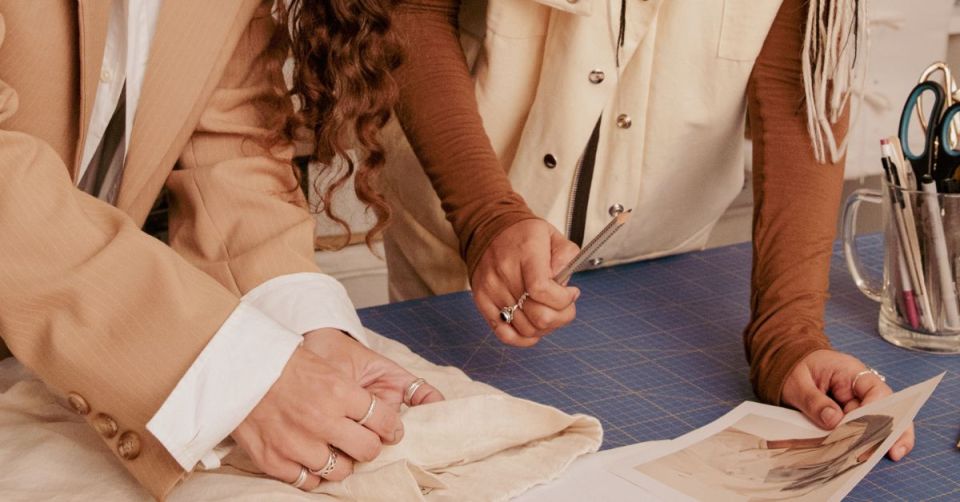Mastering Soft Skills: A Crucial Asset in the Dynamic World of Fashion

In the ever-evolving and competitive landscape of the fashion industry, technical expertise alone is no longer sufficient for success. Soft skills, often considered intangible attributes, are becoming increasingly vital in navigating the complex and multifaceted world of fashion. Beyond design acumen and trend awareness, possessing strong interpersonal skills, adaptability, and effective communication can set individuals apart in a highly competitive industry. In this blog post, we'll delve into the significance of soft skills in the fashion sector and highlight key attributes that can contribute to professional triumph.
1. Communication Skills: The Art of Expression
One of the foremost soft skills crucial in the fashion industry is effective communication. The ability to convey ideas clearly, whether through written or verbal means, is paramount. Fashion professionals often collaborate across various teams, from designers and marketers to manufacturers and retailers. Articulating your vision, whether in a design concept or a marketing strategy, requires a level of clarity and precision that only strong communication skills can provide. In a field where creativity is central, being able to express your ideas with eloquence and coherence is a powerful asset.
2. Collaboration and Teamwork: Building Fashion Synergy
Collaboration lies at the heart of the fashion industry. Whether you're working on a design project, organising a runway show, or coordinating a marketing campaign, the ability to collaborate seamlessly with diverse teams is essential. Soft skills such as teamwork, adaptability, and a willingness to embrace different perspectives contribute to a harmonious work environment. Fashion is a collective effort that thrives on the synergy of different talents coming together. Being a team player, valuing the input of others, and fostering a collaborative spirit are indispensable qualities that can propel your success in the industry.
3. Adaptability: Navigating the Ever-Changing Trends
The fashion industry is renowned for its dynamic nature, with trends evolving rapidly. Possessing adaptability is a soft skill that allows individuals to thrive in this fast-paced environment. Whether it's adjusting to changes in consumer preferences, embracing new technologies, or navigating shifts in the market, being adaptable is key to staying relevant. Fashion professionals who can seamlessly pivot and embrace change are better equipped to capitalise on emerging opportunities and contribute meaningfully to their respective roles.
4. Time Management: Meeting Fashion Deadlines with Finesse
In the fashion industry, deadlines are omnipresent. From designing a collection to orchestrating a fashion event, effective time management is a soft skill that can make or break a career. The ability to prioritise tasks, meet deadlines, and maintain a high level of productivity is highly valued. Time management not only ensures that projects are completed on schedule but also contributes to a less stressful work environment. In an industry where timing is often synonymous with success, mastering the art of time management is a valuable soft skill to possess.
5. Problem-Solving Skills: Navigating Fashion Challenges
The fashion industry is not without its challenges, from production issues to marketing dilemmas. Possessing strong problem-solving skills is a soft skill that can prove invaluable. Fashion professionals who can approach challenges with a strategic mindset, think critically, and devise innovative solutions are highly sought after. Whether it's resolving design complications, addressing logistical issues, or overcoming creative hurdles, problem-solving skills are integral to navigating the complexities of the fashion world.
6. Networking: Building Professional Connections in Fashion
Networking is a soft skill that extends beyond the workplace. In the fashion industry, building and maintaining professional connections is instrumental to career growth. Attending industry events, engaging on social media, and cultivating relationships with peers, mentors, and influencers can open doors to new opportunities. Networking not only provides insights into industry trends but also offers the chance to collaborate on projects, secure mentorship, and stay informed about job openings. The ability to build a robust professional network is a soft skill that can significantly impact one's success in the fashion industry.
Conclusion: The Soft Skills Advantage in Fashion
In the dynamic and competitive world of fashion, soft skills are the intangible qualities that can elevate your career trajectory. Effective communication, collaboration, adaptability, time management, problem-solving, emotional intelligence, and networking are all soft skills that contribute to professional triumph. While technical expertise remains essential, it is the combination of hard and soft skills that creates a well-rounded and successful fashion professional.
Aspiring to excel in the fashion industry requires a commitment to continuous learning and development, not only in design and trend analysis but also in the cultivation of these critical soft skills. By recognising the importance of these attributes and actively working to enhance them, individuals can position themselves as valuable contributors in an industry that demands both creativity and professionalism. Embrace the power of soft skills, and pave the way for a rewarding and enduring career in the ever-evolving world of fashion.
Now it’s time to learn about how you can apply these soft skills within a CV, or head back to our blog to read more about our inside knowledge of working in the fashion industry.


